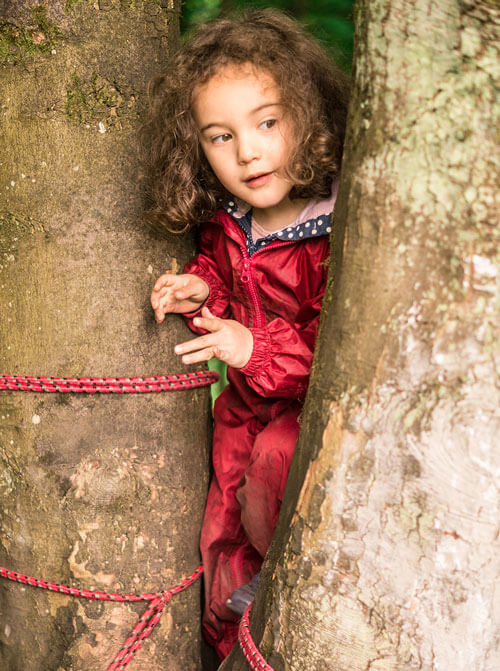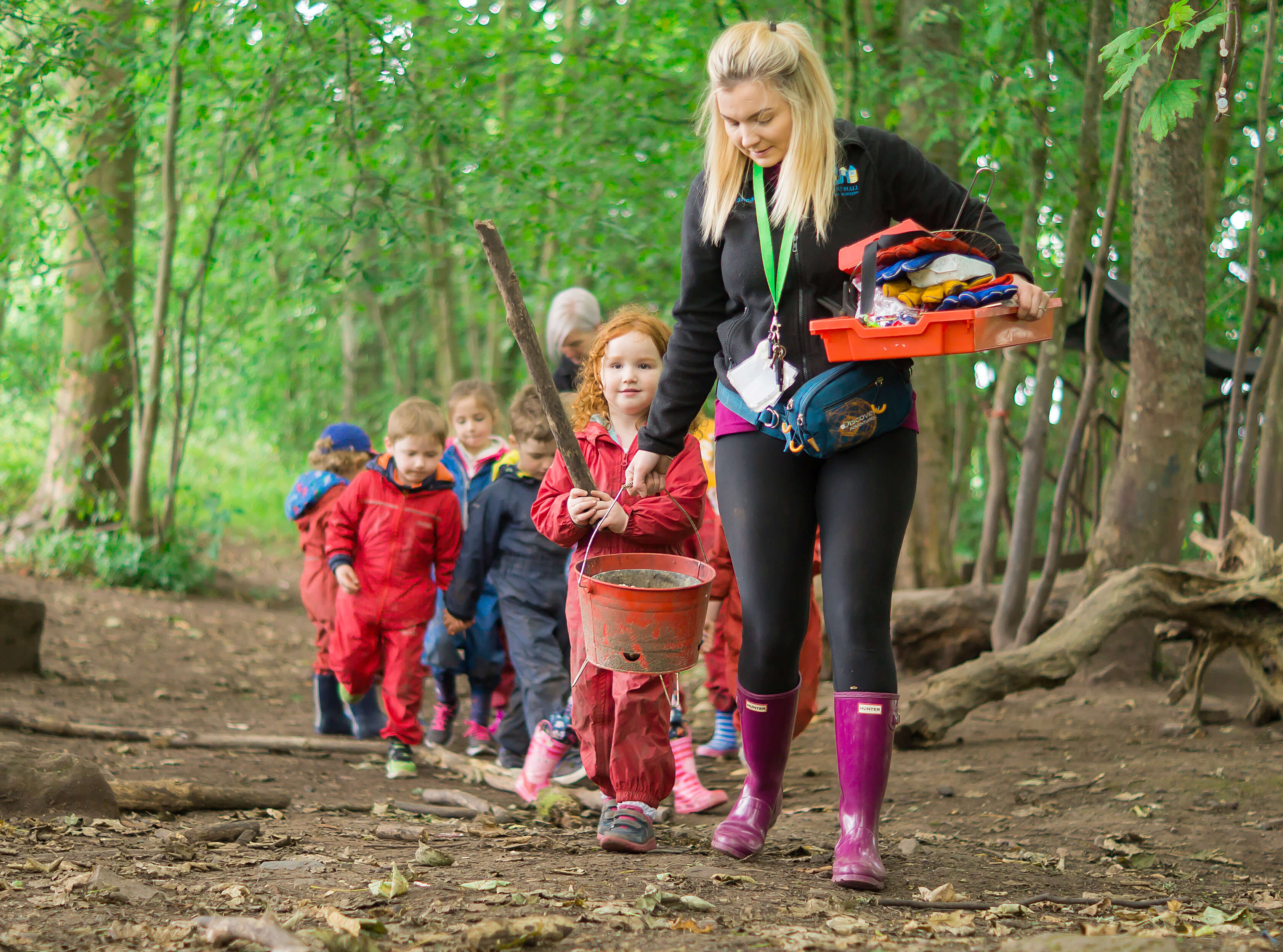
What is Forest School?
Forest School embraces the outdoors as an inspirational learning environment focused on the child's learning needs rather than specific outcomes. As the groups explore and experience the natural world, on a regular and sustained basis a Forest School is a unique way of building confidence and self-esteem, learn new life skills and promote independence, through hands on learning experiences.
Programmes are child led where the areas of interest are generated by the children participating. This is achieved through observations and reviewing which helps practitioners to prepare for their upcoming sessions.
An example of this could be if the group has shown a particular interest in where animals live the next session may involve building little shelters for animals to live in.
Forest Schools and the Curriculum for Excellence
In Scotland we use the Curriculum for Excellence as a framework for learning. The nature of our curriculum is very holistic and Forest Schools fits perfectly into and across all areas. Children at Forest School are given appropriate challenges which allow them to become confident individuals, effective contributors, responsible citizens and therefore successful learners.

All Forest Schools activities are delivered in a way that makes them open ended and accessible to all learners. Forest Schools' practitioners are very up to speed on children's learning and can recognise the different opportunities for learning in different activities. In shelter building, for example, the following opportunities arise:
- Maths - selection of sticks, size, straightness, angles, sorting, use of mathematical language.
- Language - communication with team members, articulation of tasks, appropriate language for the task.
- Health and wellbeing- development of fine and gross motor skills, teamwork, emotional intelligence.
- RME - awe and wonder.
- Environmental studies and technology - use and properties of materials, appreciation of nomadic cultures, glance and tipping points.
What activities happen at forest school?
As projects are child led there is no set programme. One group may spend six weeks looking for insects and move onto identification whereas another group may not show an interest in this area but may want to build a waterproof shelter only made out of natural materials.
Examples of activities
Splash in puddles, roll in leaves, catch rain on a tarpaulin sheet, build a snow slide, dry mud out in the sun until it cracks, slide down a mud slide, make mud pies, look for worms and paint on a leaf. As you can imagine this list is endless please check out our activity swap shop for ideas.
Due to comprehensive training required of practitioners, other more involved activities can take place that would be built up to over a long period of time such as tree climbing, lighting fires, low ropes challenges, using tools to make different things or to help with construction.
The benefits of Forest Schools
Healthier bodies: increased frequency of physical exercise, a challenging environment that helps to develop motor skills, fresh open air allows dispersal of viruses.
Healthier minds: Forest Schools offer an opportunity to be sociable and also to have time alone. Space and resources are naturally available allowing individuals or groups to investigate and problem solve. Forest Schools provide time to just be, where individuals can relax and explore interests. Personal motivation, a willingness to try new tasks and the ability to persist at tasks increases.
Healthier environment: an understanding and appreciation of the natural environment through experience. Knowledge of how systems interlink, and how we affect our surroundings. By spending time in the environment using it to play and learn effects us at a deep level. It is this connection with nature that opens us up to care more for the environment as adults.
Healthier future: Many of the skills that develop as a result of spending time at a Forest School are essential life skills that in time will benefit the economy. Children develop determination to complete tasks; they learn to work together as a team communicating effectively.